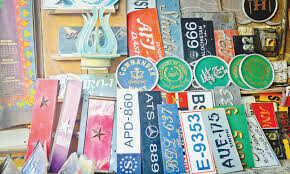ON Dec 25, 1974, Muslims and Christians in Pakistan celebrated their major festivals — Eidul Azha and Christmas — a phenomenon which was unlikely to recur for at least two centuries, according to astronomers. Although the exact year of another coincidence of that nature could only be ascertained through observatories in Punjab and Karachi, which were closed at the time due to holidays, astronomers believed it could be safely claimed that there was no chance of Eidul Azha and Christmas falling the same day again in less than 200 years.
As far as the former festive occasion was concerned, high prices of sacrificial animals restricted the number of cattle slaughtered on two days of Eid. Due to the exorbitant prices of sheep and goats, the number of cows sacrificed was more than the previous year as it enabled seven persons to share the cost. The butchers, too, increased their charges, varying from locality to locality. It ranged from Rs20 to Rs30 in neighbourhoods such as Liaquatabad and Golimar, and Rs50 in the Artillery Maidan area for each sheep and goat; and up to Rs100 for a single cow. The Karachi Municipal Corporation (KMC) tried a new way of cleaning the streets. There were squads to assemble garbage at one place, while mobile refuse vans drove through the streets at regular intervals to collect offal and garbage to dump them at the KMC ground.
The corporation was in the news on Dec 28 again when it was reported that the KMC had decided to scrap the defective and unwanted speed-breakers, and rebuild better ones, in various parts of the city. It had already finished a list of the breakers which were considered to be a traffic hazard (16 of them were to be scrapped in seven days).
The traffic issue, by the way, had become a problem for the authorities as on Eid day itself, four persons were killed and five received serious injuries in road accidents.
Apart from all of these happenings, an important book launch caught the media’s attention. On Dec 27, Searchlights on Baloches and Balochistan, a 387-page book penned by Justice Khuda Bakhsh Marri, a judge of the High Court of Sindh and Balochistan, was launched by the Attorney-General of Pakistan, Yahya Bakhtiar, at Hotel Intercontinental in the presence of judges, lawyers, writers and journalists. The attorney-general, also a Baloch, said the book was the most valuable and inspiring work of a patriotic Pakistani. The author had spent years in research and study to dig out facts at the British Museum and the India Office Library. For other reasons as well, the publication would prove to be engaging for readers. Mr Bakhtiar pointed out that Mr Marri had taken great pains to correctly portray the ‘glorious traditions and the marvellous history’ of the Baloch who suffered at the hands of foreign rulers and were exploited by their own people. The Baloch, he added, were a highly civilised people with a sense of honour. They’re kind, bold, generous and honourable even though they may be poor.
Published in Dawn, December 23rd, 2024














































Dear visitor, the comments section is undergoing an overhaul and will return soon.